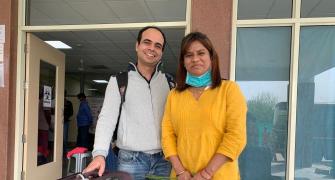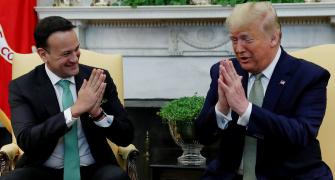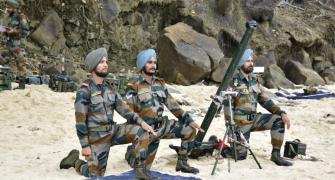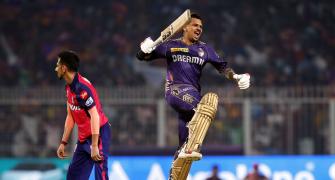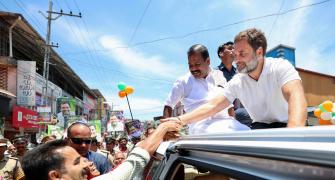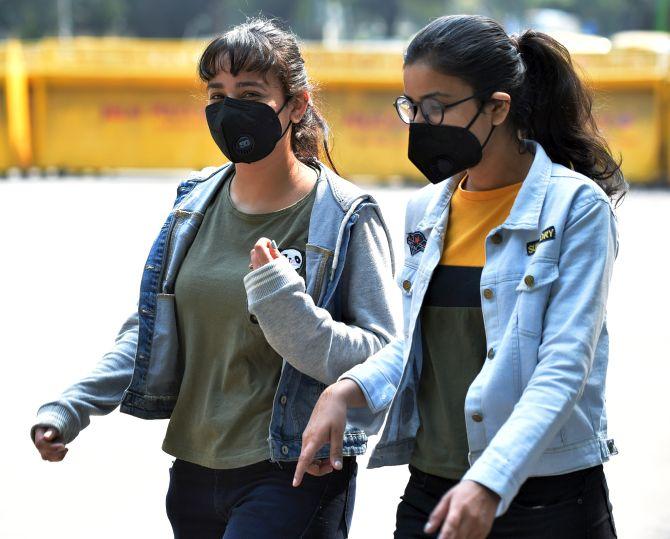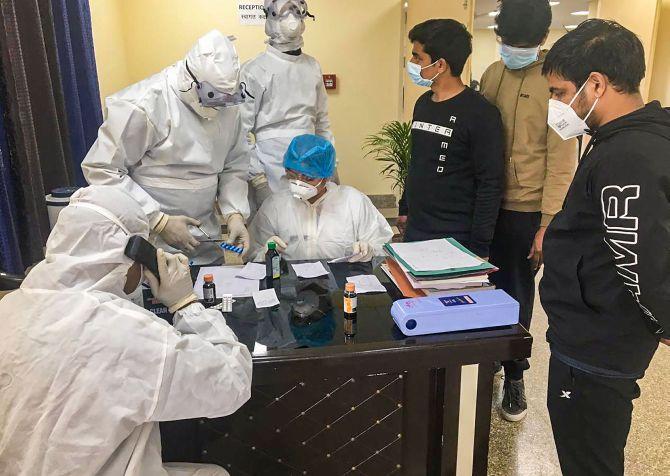Pakistan used the South Asian Association for Regional Cooperation (SAARC) nations' video-conference on coronavirus on Sunday to raise Kashmir, with the country's State Minister of Health Zafar Mirza calling for an immediate lifting of the 'lockdown' there to allow virus containment measures.
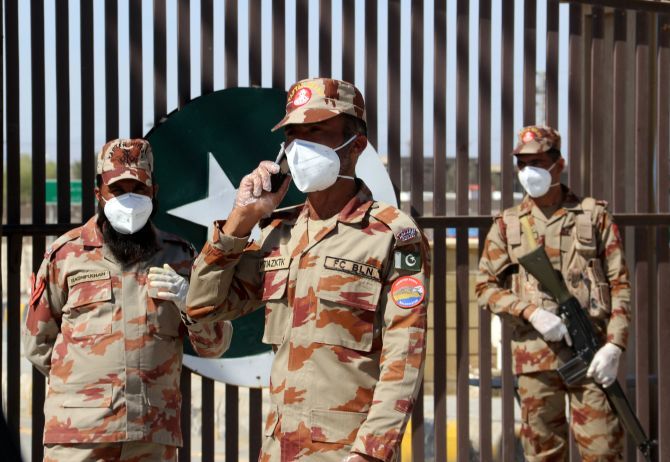
Government sources in New Delhi said the neighbouring country's attempt to 'politicise' a humanitarian issue by its 'unwarranted' statement on Kashmir during the video-conference reflected 'very poorly' on it.
Apart from Mirza, Prime Minister Narendra Modi, Sri Lankan President Gotabaya Rajapaksa, Maldivian President Ibrahim Mohamed Solih, Nepalese Prime Minister K P Sharma Oli, Bhutanese premier Lotay Tshering, Bangladeshi Prime Minister Sheikh Hasina and Afghan President Ashraf Ghani participated in the video-conference.
Mirza called for the 'lockdown' to be lifted in Jammu and Kashmir to deal with the coronavirus threat.
"Equity in health is a fundamental principle of public health. In this regard, let me say that it is a matter of concern that COVID-19 has been reported" from Jammu and Kashmir and in view of the health emergency, it was imperative that all 'lockdown' there must be lifted immediately, he said.
"Opening up communication and movement would facilitate dissemination of information, allow distribution of medical supplies and allow containment...to proceed unimpeded," the special assistant to the Pakistani prime minister on health said.
He also said that 'a calm, calculated and deliberate response is the need of the hour to fight the novel coronavirus'.
Mirza said Pakistan was amongst the first few countries to undertake a joint evaluation of the state of preparedness to cope with health emergences in the context of international health regulations 2005, Radio Pakistan reported.
Highlighting Pakistan's response strategy, the special assistant said it has four pillars, which include governance and financing, prevention, mitigation, and communication.
"We have decided to close all our educational institutions for three weeks, entire western border for two weeks, restrict international flights to three airports only and ban all large public gatherings, reinforced screening measures at the airports and at the ground processing,” he said.
Mirza said COVID-19 had been characterised as a global pandemic, but at the same time it is deemed controllable, provided timely and appropriate public health measures are put in place.
He said Pakistan has been involved in the containment efforts right from the outset of the outbreak.
"We have been alert to the dangers and have put in place appropriate public health measures and developed required protocols and guidelines for the safety of our citizens," he said.
He proposed that SAARC secretariat is best place to coordinate at regional level, which should be mandated with establishing a working group of national authorities for health information and data exchange as well as coordination for global responses in real time.
He said that Pakistan would like to reiterate its earlier proposal of hosting SAARC health ministers' conference at an appropriate time.
He said the regional countries should reach out to specialised development partners including the WHO for mobilisation for technical advice and resources.
Government sources said Pakistan chose to be 'churlish' and used the video-conference for political point-scoring.
The neighbouring country sent its state minister of health, who was uncomfortable while speaking, they said.
Pakistan raising the matter reflected 'very poorly' on the country's dealing with the humanitarian issue, the sources said.
"Raising the issue was unwarranted and out of context. Pakistan attempted to politicise a humanitarian issue," a government source said.
India could have kept Pakistan out of the video-conference, but as it was a humanitarian issue, the country was invited, the sources said.
"Every leader responded to Prime Minister Narendra Modi's call, but Pakistan chose to send its health minister, which reflected its lack of seriousness," a source said.
Even the Nepalese prime minister participated in the video-conference a day after he was discharged from hospital, but Pakistani Prime Minister Imran Khan chose to stay away, the sources said.
When Pakistan raised Kashmir at the video-conference, nobody responded, they added.
The Pakistani minister was the only one who did not thank India for the initiative, the sources said.
Calling on the SAARC nations to set an example for the world, Modi had reached out to the eight-member regional grouping and pitched for a video-conference among its leaders to chalk out a joint strategy to fight coronavirus, which has killed over 6,000 people globally.
His appeal got a prompt response from Sri Lankan President Rajapaksa, Maldivian President Solih, Nepalese Prime Minister Oli, Bhutanese premier Tshering, Bangladeshi Prime Minister Hasina and the Afghan government, all of whom welcomed the proposal.
Pakistan's response to the proposal came late, with the country's Foreign Office Spokesperson Aisha Farooqui saying Mirza, the Special Assistant to the Pakistani Prime Minister on Health, will be available to participate in the video-conference.
Pakistan has been trying to internationalise the Kashmir issue, but India has asserted that the abrogation of Article 370 of the Constitution is its 'internal matter'.
New Delhi has also asked Islamabad to accept the reality and stop its anti-India rhetoric.

